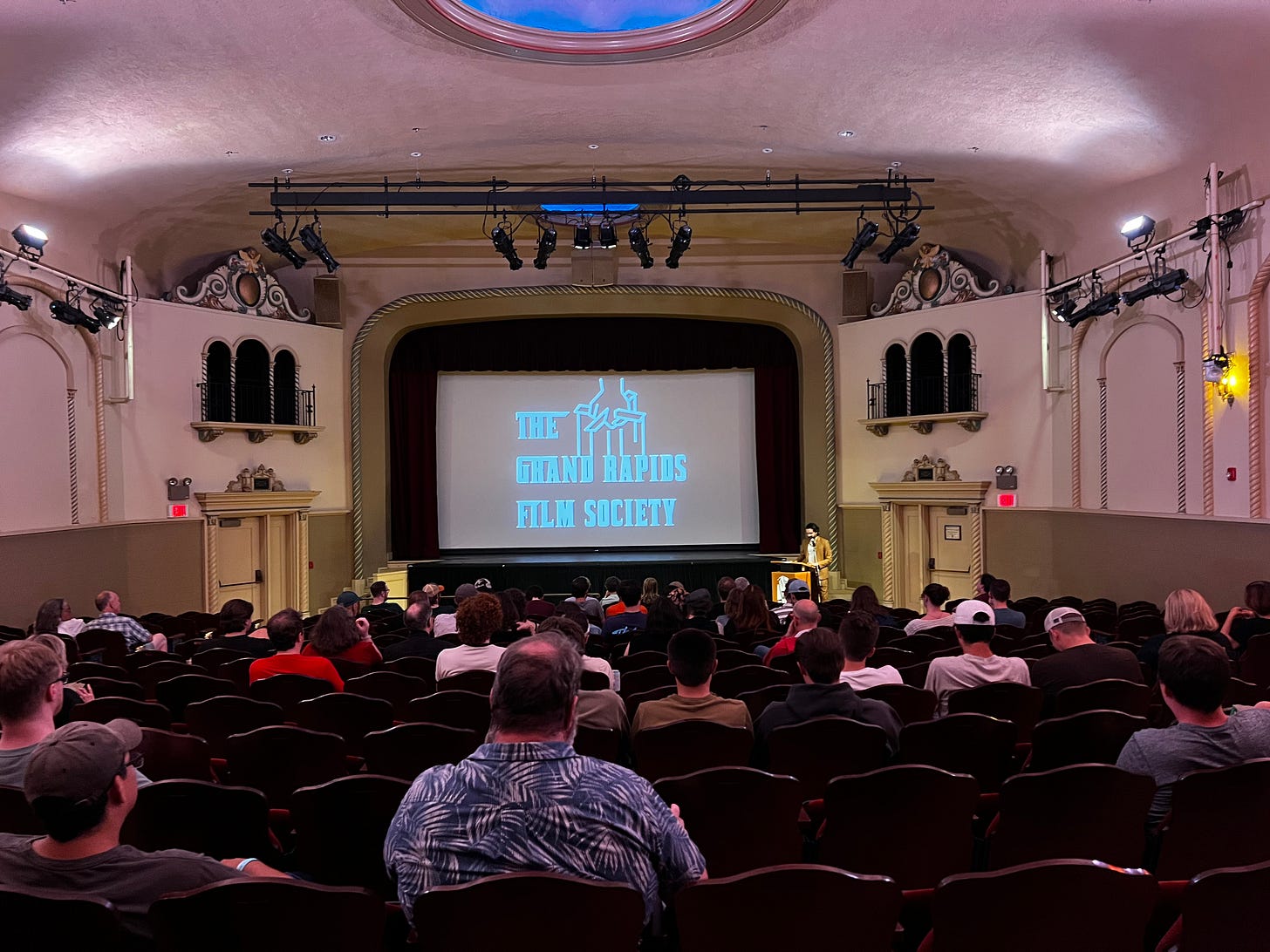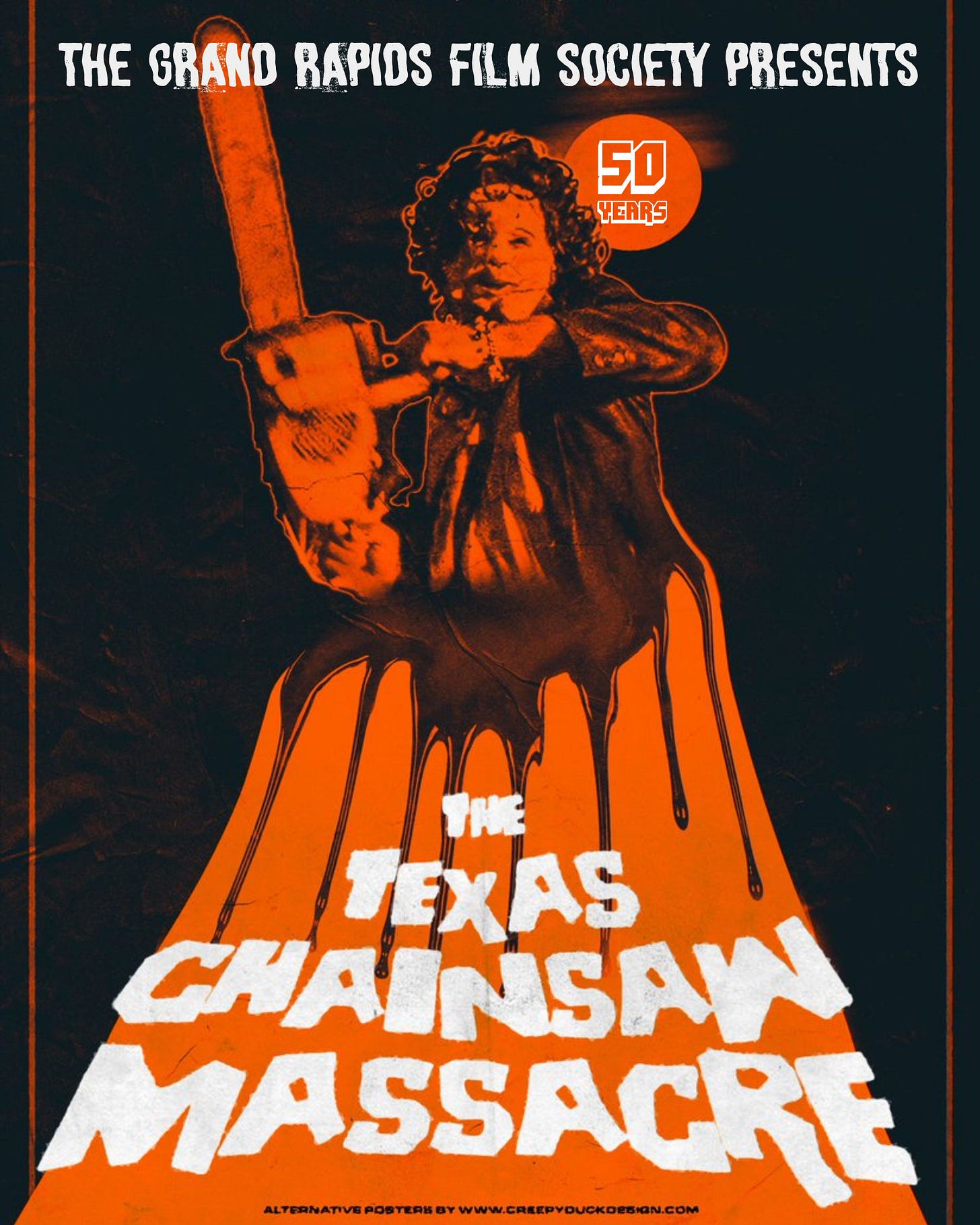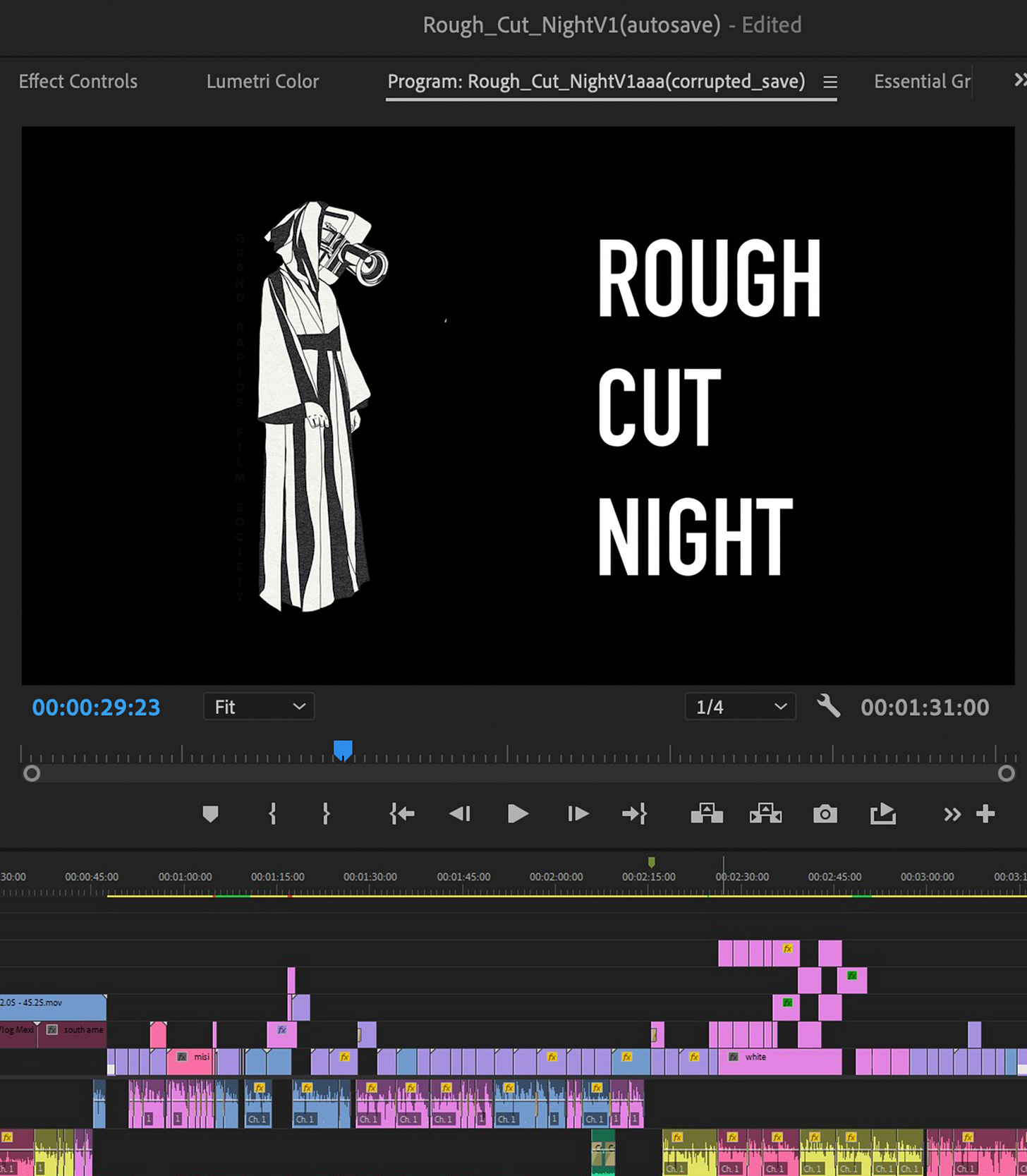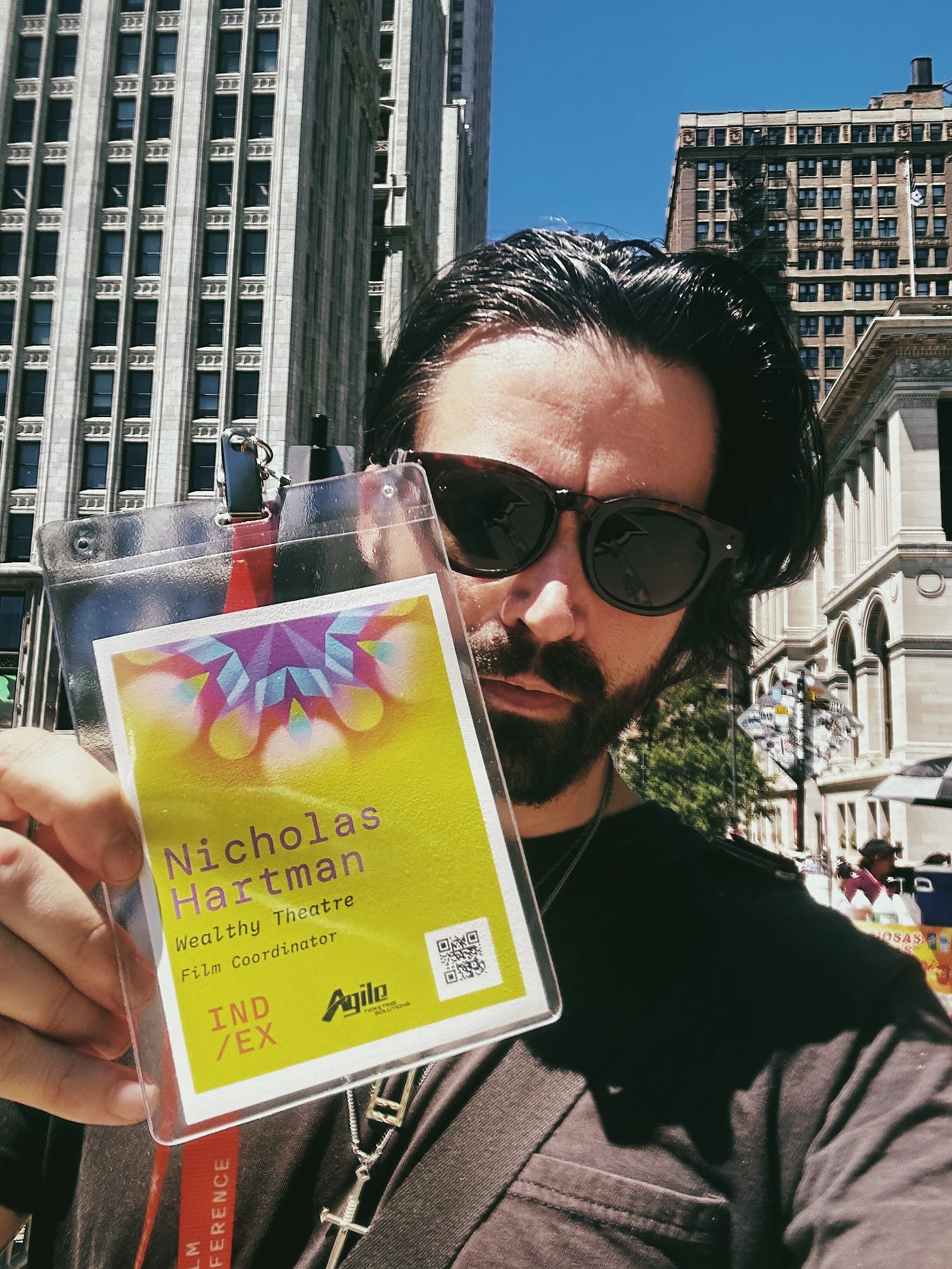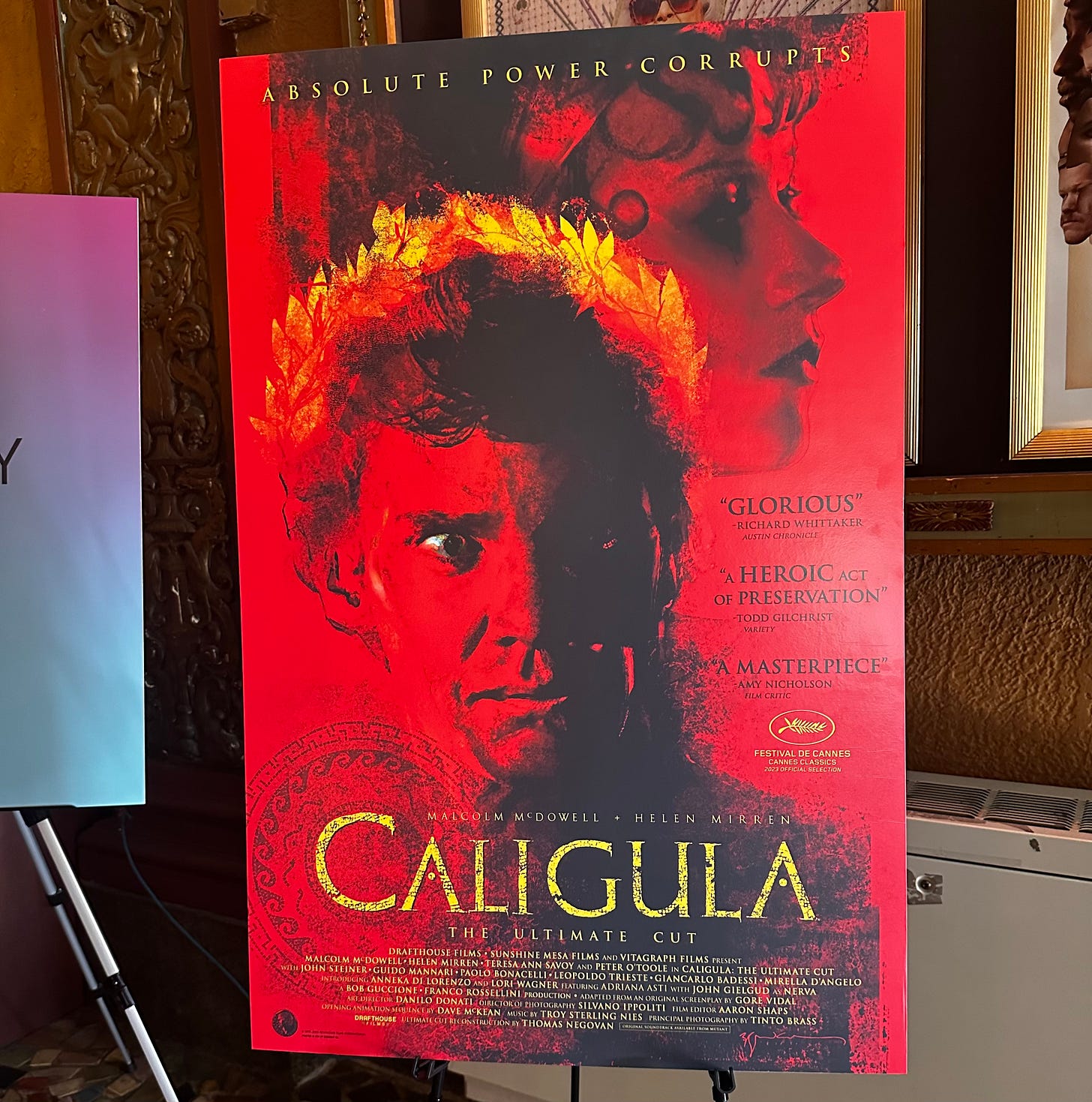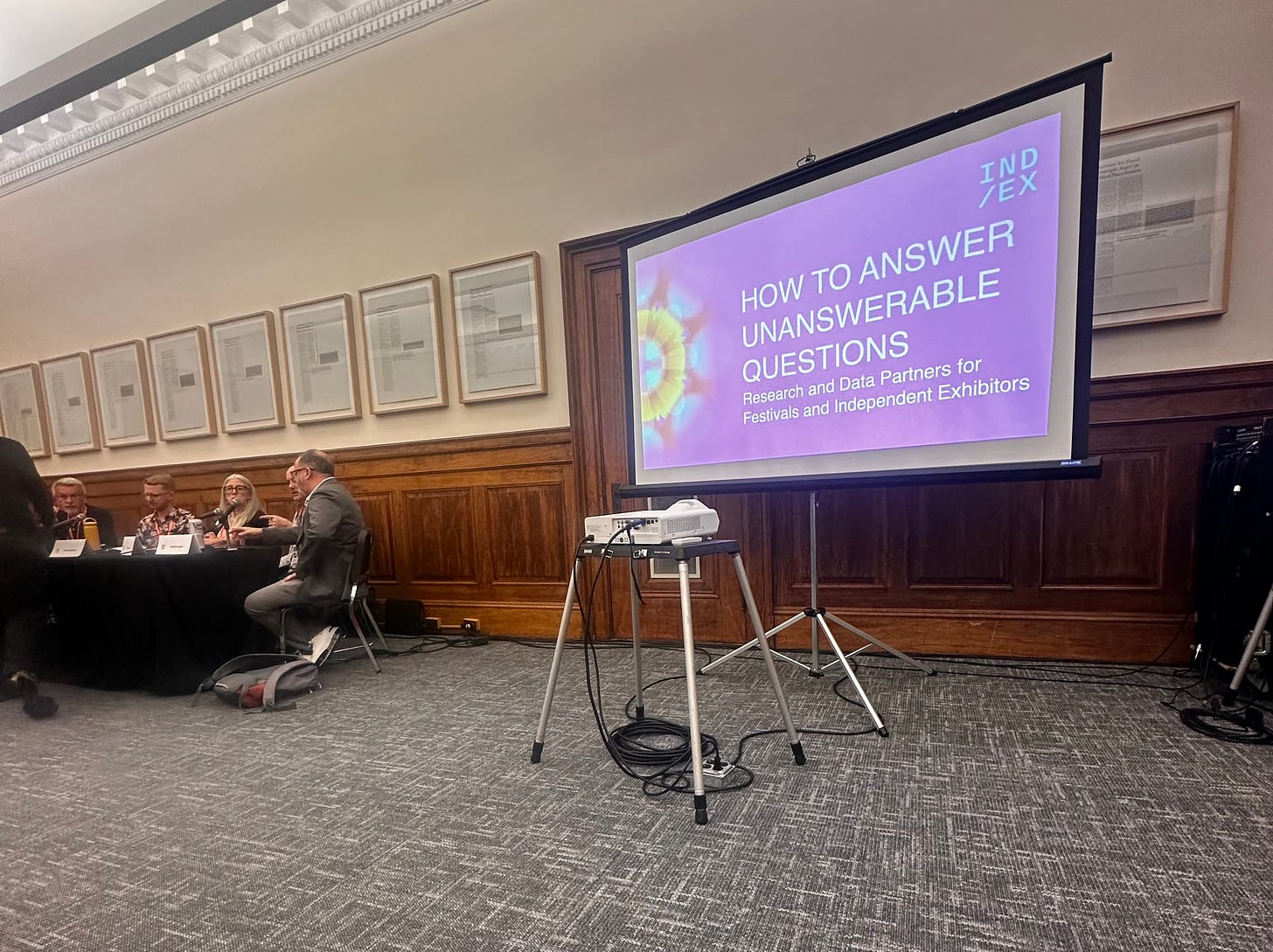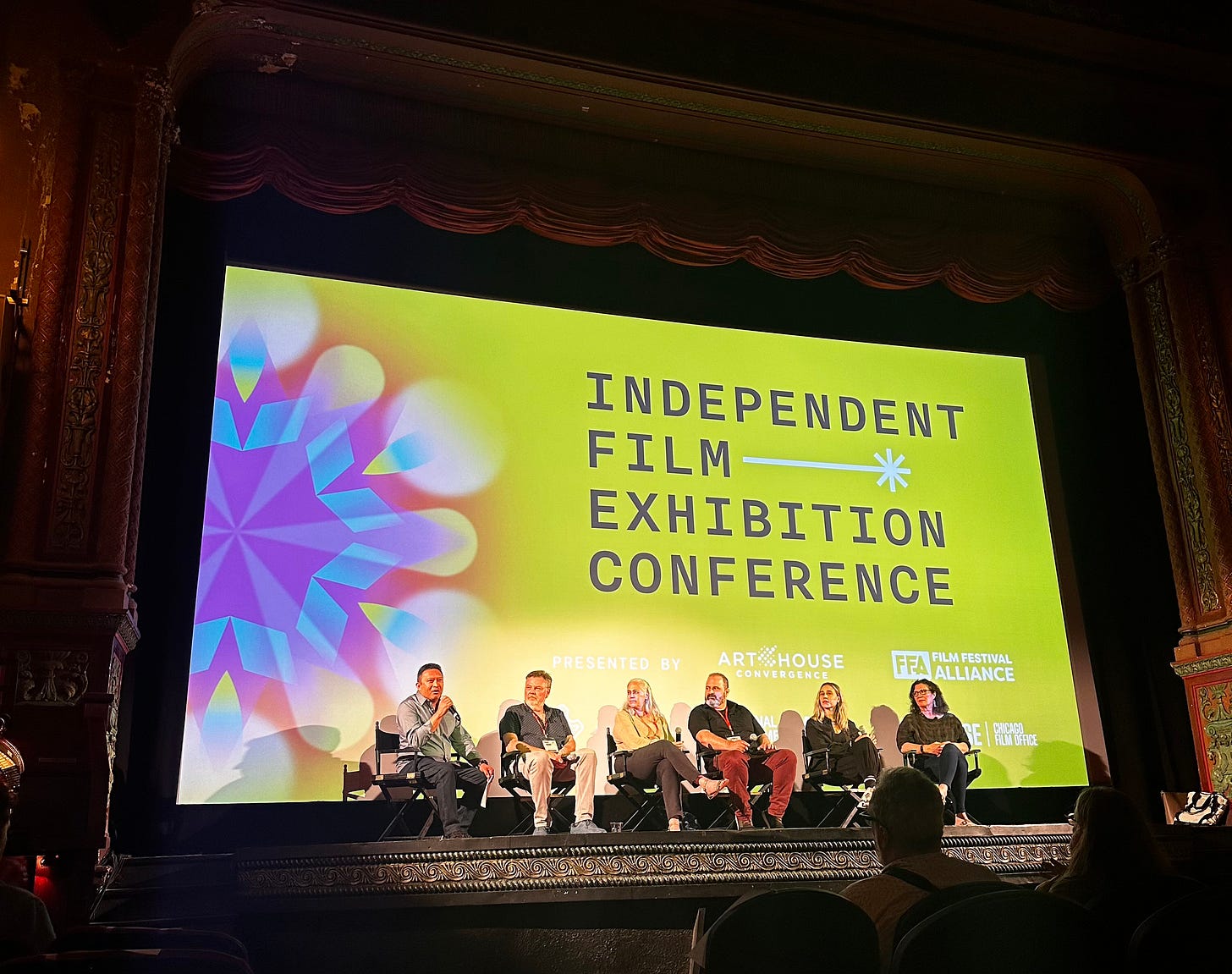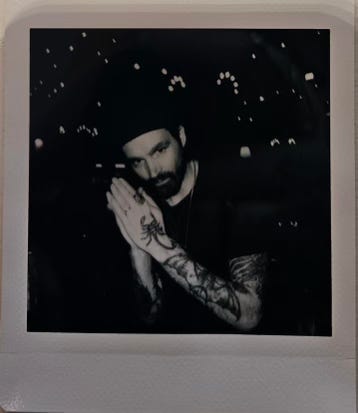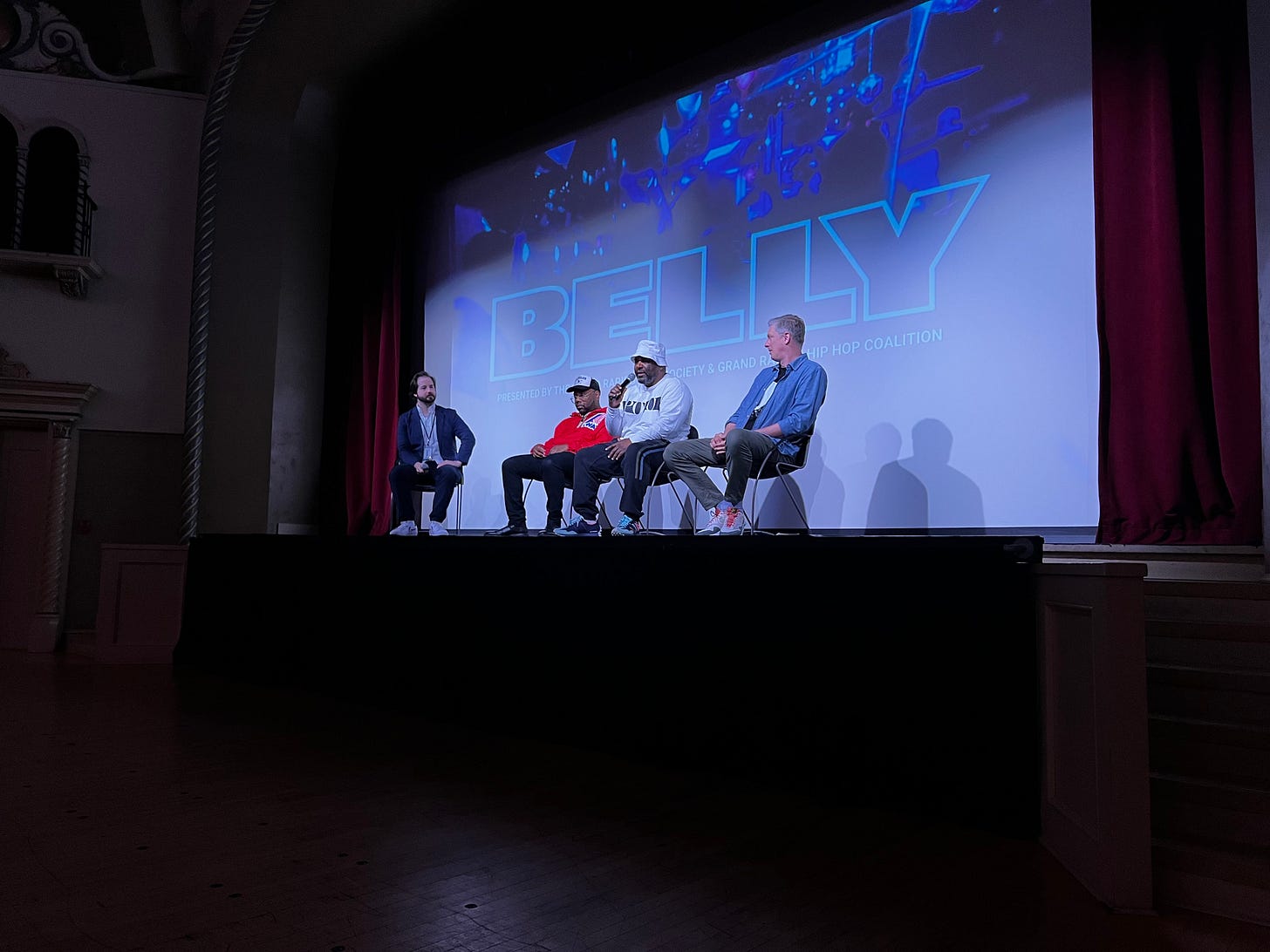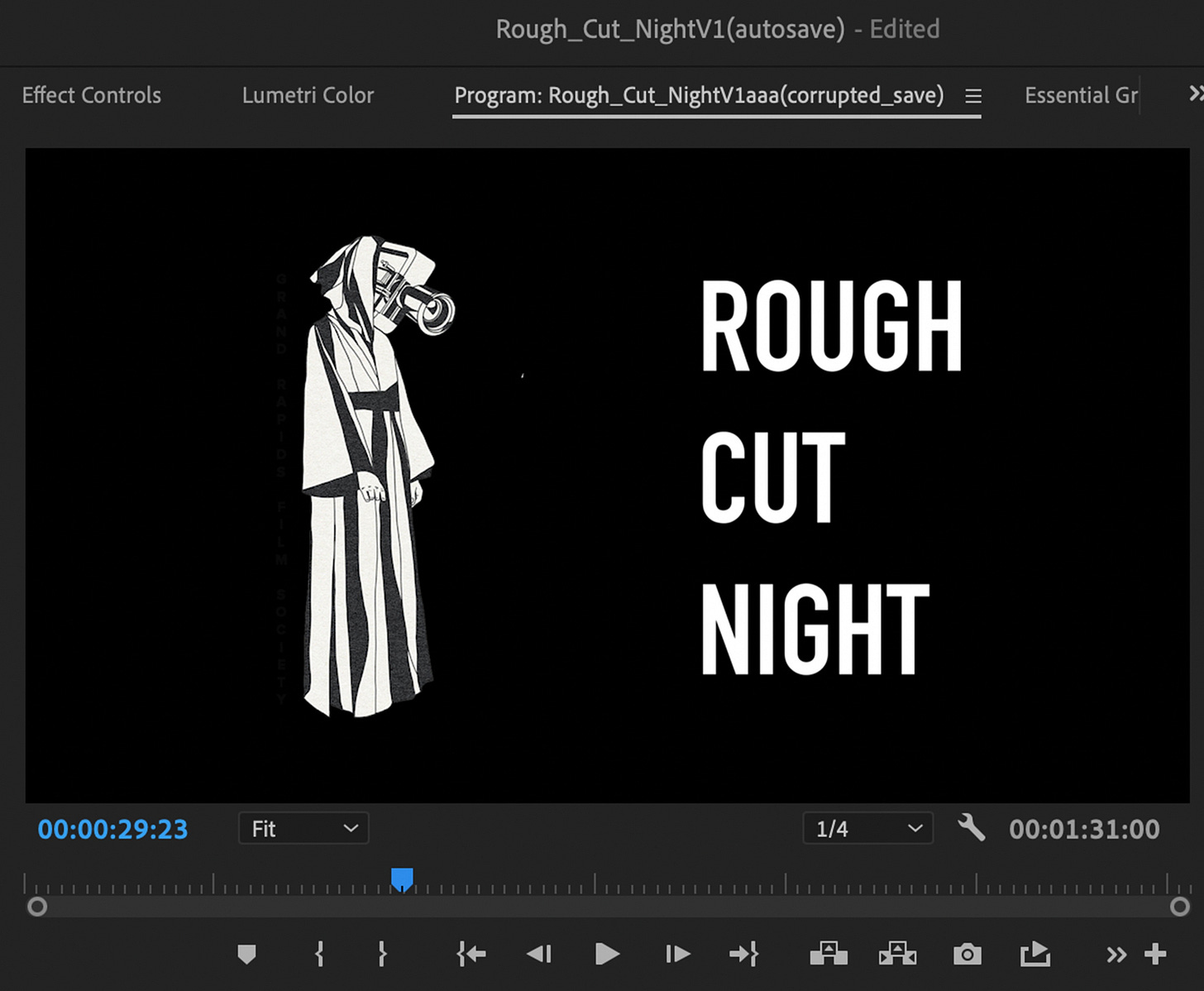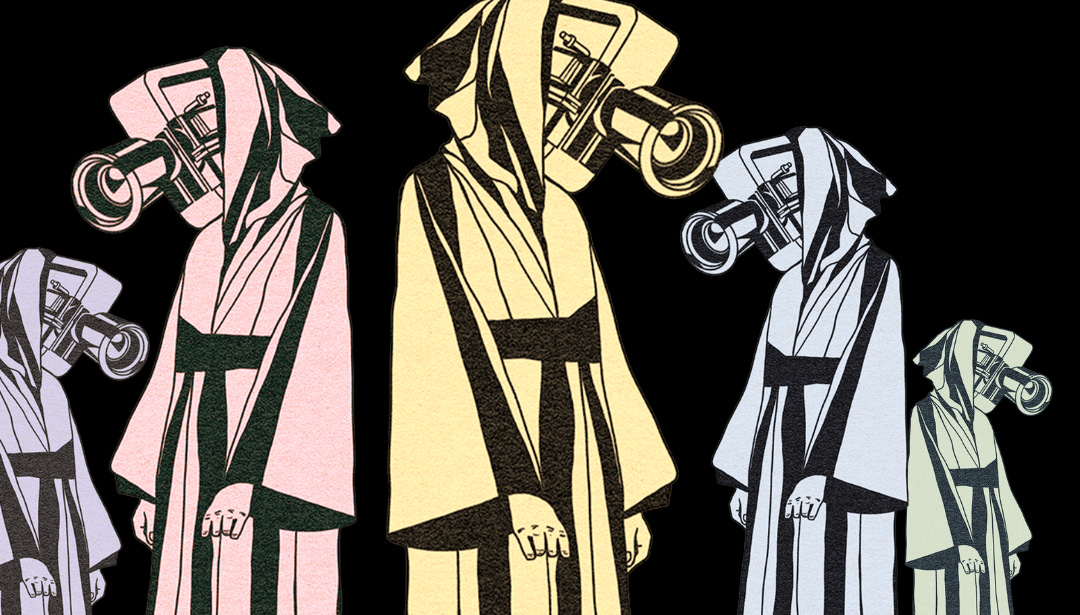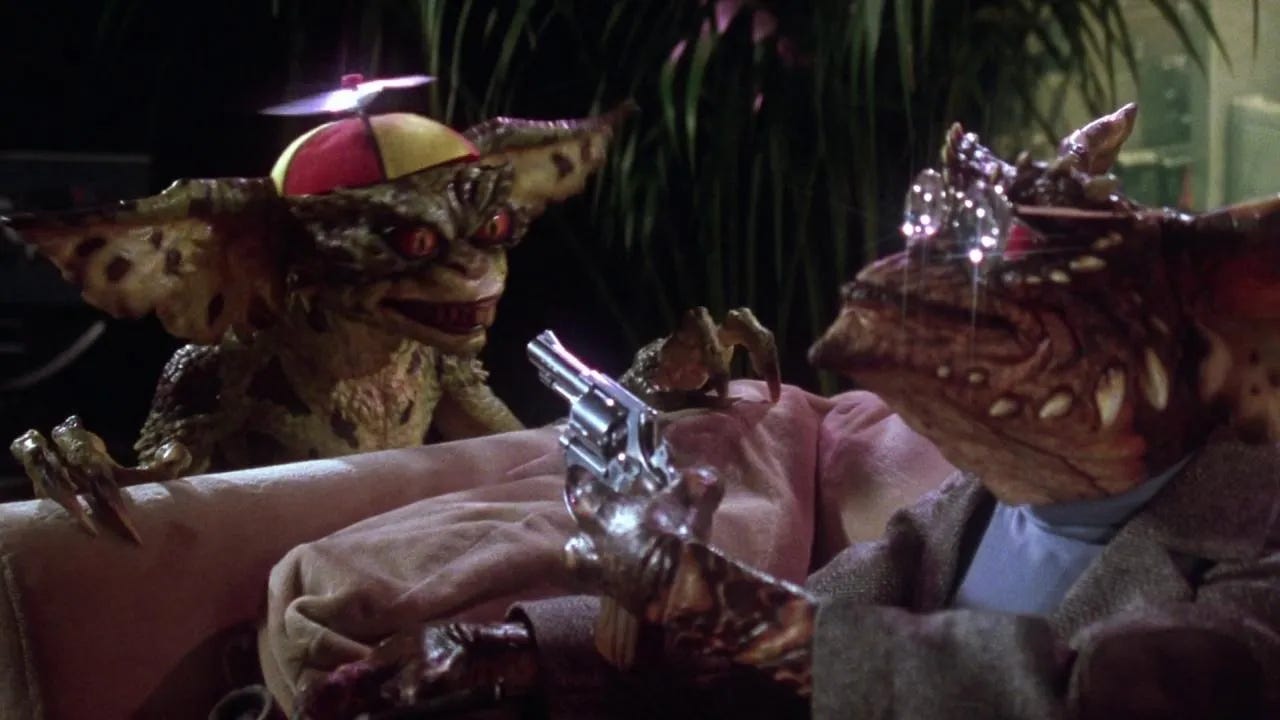ISSUE #66
BEAM FROM THE BOOTH | GRAND RAPIDS FILM SOCIETY
[EDITED BY: GRIFFIN SHERIDAN & SPENCER EVERHART]
Hello and welcome back to an all-new installment of BEAM FROM THE BOOTH brought to you by GRAND RAPIDS FILM SOCIETY!
THANK YOU to everyone who came out to celebrate our 50th film screening at last night’s 50th anniversary screening of The Godfather Part II. It has been our genuine pleasure to serve the Grand Rapids film community, and we hope to continue to do so for as long as possible! Heres to another fifty screenings, Coppola, and so much more! And while we’re on the subject of 50th anniversaries...
Later this summer, on AUGUST 30th, we are thrilled to present a special 50th ANNIVERSARY SCREENING of Tobe Hooper’s THE TEXAS CHAINSAW MASSACRE. Stay tuned for further details on this special event, but for now, go get your tickets because we think this is going to be a BIG one. But before that...
ROUGH CUT NIGHT, the first of an all-new type of GRFS social event, starts TONIGHT at 6pm in the Koning Micro Cinema! This event allows local independent filmmakers the chance to screen early cuts of their short films (or select scenes from an upcoming feature) in a theatrical setting with an audience ready to give feedback. Spots to present material have all been reserved, but we highly encourage you to join the audience as the whole mission of this event is to offer filmmakers as many fresh eyes as possible! If you need further convincing, our own Matt Everitt wrote all about why you should join the audience tonight in last week’s issue.
Our fearless leader Nicholas Hartman recently had the pleasure of being a part of the Arthouse Convergence conference. Check out his thoughts on the event below.
MY EXPERIENCE AT ARTHOUSE CONVERGENCE
[BY: NICHOLAS HARTMAN]
It’s Monday, June 24th, 9:08AM and I take a step off the train and find myself surrounded by the beautiful city of Chicago. For the next four days, I’ll be attending Arthouse Convergence — the largest independent film conference in the United States.
If you’re not familiar with Arthouse Convergence, it’s an annual conference where independent film distributors such as Magnolia, IFC, A24, Janus, etc. gather to meet with the ‘little guys’ — you know, like Wealthy Theatre; historic theaters that are doing all they can to make an impact on their community; the theaters who are overshadowed by the multiplexes.
Why am I attending? Well, because I care. Not only because I care about this theater but also about you: our readers, our community, our city. I want to see our community grow, and the only way that can happen is for me to grow as a person, as a programmer, and as a leader.
Okay, let’s get into it.
My first night there was quite relaxed. No panels to attend, only a private screening at the beloved Music Box Theatre. What are we seeing? An “ultimate” cut of the taboo film Caligula (1979) presented by Drafthouse Films.
I’m not sure if you’re aware of this film, but upon its release it was highly controversial due to its extreme pornographic and violent nature. In fact, the cinematographer and editor requested that their names be removed from the film because they thought it was garbage. What I learned was the producer of the film was an executive from Hustler (X-rated magazine) and demanded the film be cut down to around 90 minutes. Due to this, the film lacked story and only relied on sex and violence.
According to Drafthouse Films, they dug up over 90 hours of lost footage and cut it back into the film. They even worked alongside Malcom McDowell to bring the film back to its original vision. Caligula isn’t for the faint of heart, and even though they restored the film it’s not an easy one to get through; however, I still recommend it if you’re given the chance.
Over the next three days I attended a handful of insightful panels. I don’t want to overwhelm you with a breakdown of every discussion. Instead, I’d like to give you some insight about the panels that served me, Wealthy, the Film Society, and most importantly — our community.
Before I got into film programming/curation, I always felt and understood the importance of the theater. For me (and many) it’s a home away from home; a place where you see familiar faces, a place where you should feel welcome. One specific panel titled “Cultivating Community Through a Shared Ritual” really homed in the importance of the relationship between a theater and its community. The panelists spent time encouraging us to build honest relationships with our patrons, to create fun incentives, create unique programming, etc. Honestly, it all sounds like common sense, but you’d be surprised how many other theaters didn’t understand this. Is Wealthy and GRFS all-knowing in this? No, absolutely not, but I do know we take pride in what we do and understand there is ALWAYS room for growth.
Another panel I attended was “How to Answer Unanswerable Questions: Research and Data Partners for Festivals and Independent Exhibitors” which explored how to incorporate research and data in strategic planning for theater development. I took two things away from this panel. One: archive everything! Archive your flyers, films, articles, t-shirts, etc. Why? The more you keep track of your history, the more of a story you have to tell. If you have a story to tell, you can apply for multiple grants. The more grants you can apply for, the more funding you have for your theater. Luckily, Wealthy is fantastic at archiving. You should see our office — posters and flyers everywhere!
My second takeaway from this panel was discovering the biggest threat to American theaters. Most would assume this threat is streaming. Surprisingly, it’s not. The biggest threat is America’s mental health crisis. According to the data provided, more than 50% of Americans are persistently feeling hopeless and, from there, the issue just snowballs. Depression leads to physical health issues. Further data stated nearly 45% of the US population is clinically obese and, between depression and a decline in physical health, that leads to social isolation.
So, we’re faced with a major issue, but the question is: how is this fixed? The answer is to make your theater feel like a home away from home. Make your audience excited to come out, not only for the film but to see the staff. Theaters are responsible for creating a sense of belonging. If you feel like you’re a part of something it gets you off your couch, it gets you moving, and — overall — it creates a sense of excitement.
Are we doing this? I hope so, but I do know we can always do more. Before I move on, let me say that if you’re feeling hopeless, seek help, and know you always have a home at Wealthy Theatre.
The last panel I want to share was titled “Focus, Please! A Collegial Introduction to Projection.” There were multiple components to this panel such as the complexities of projection, pros and cons of 35mm film, projector maintenance, etc. However, what I want to share with you is something I’ve struggled with as a projectionist for years and that’s the lack of recognition that projectionists deserve.
Most audiences attend a screening with only one thing in mind: the film. Now, of course, there’s nothing wrong with that. We don’t expect our audience to know the ins and outs of what goes behind the scenes — this is what we’re paid for, this is our career. However, most audiences believe projectionists just hit the “play” button and the show begins. That could not be further from the truth. As soon as the programmer books a film, the projectionist’s work begins. They needs to know what format the film is on. If it’s a DCP (Digital Cinema Package), then they must work with Technicolor/Deluxe to get that drive shipped to the theater. Once it arrives at the theater, it must be ingested into our software/projector (which takes hours). Once ingested, the film must be tested to ensure a successful playback. Audio must be adjusted, aspect ratio corrected, even color grading may take place.
What if the film isn’t a DCP? Is it a disc? If so, go through the same process but make sure to watch the entire film to ensure the disc isn’t damaged; nothing worse than having a disc skip in the middle of a show, it has happened to me before, and I swear to you it feels like the end of the world.
Not only do projectionists have to stress about format, but they also must control the light board, be responsible for microphones/audio, and always have clear communication with anyone that may be presenting. They need to make sure the show is seamless. The lights, sound, and image must have a smooth transition into the film, and that skill is not easy.
Next time you’re at Wealthy Theatre (not a multiplex, their systems are almost all automated) keep in mind how much work our projectionist is doing. Once a presenter walks off that stage, they’re running to the light board to slowly dim the lights then running over to the projector to switch inputs and doing all they can to ensure our audience experiences a proper presentation.
Finally, I want to touch on one last panel titled “Letterboxd or Critics’ Pick: Where Is Film Critique Happening Today and Why Does It Matter?” I was really excited about this panel, but unfortunately not all discussions are going to be what you hope for. Sure, there were some takeaways such as if you want more exposure on what you’re programming then invite your local press for coverage, or use Letterboxd to gauge the reception of a film to see if it’s worth programming or not.
My issue with this panel was one of the panelists (a film critic for the Tribune) became so negative toward Letterboxd and contemporary film reviews. He kept stating how he ‘paid his dues’, how he went to school and worked his way up the ladder to be a critic. He complained that today’s film culture is corrupted by “wannabe” film critics and everyone believes they’re capable of being one because of Letterboxd’s platform.
Overall, this left a sour taste in my mouth. I get it: you did your time, and this is your profession, this is your career. However, from my experience, film is for everyone, and everyone is entitled to their opinion. So if you consider yourself a film critic and only write Letterboxd reviews, know that I’m in your corner. Keep writing, keep celebrating your opinion — someone is paying attention.
The last thing I want to leave you with is the most valuable thing I learned and that’s how ahead of the curve Wealthy Theatre and GRFS are. In one panel, I had the opportunity to share information about what we do and what we’ve accomplished. As I stated our accomplishments, there were many attendees in a state of awe at what we provide our community. To my surprise, no one there is focusing deeply on community gatherings outside of film screenings.
Our Roundtables, Pitch Nights, Rough Cut Nights, and Open Projector Night are programs that are rare, and most theaters/societies are not hosting such events. Also, when I educated them that the GRFS board meets once a week, they couldn’t believe it because, well, their boards meet once a month. How do they get anything done? Honestly, most don’t...but we do because we care more than you’ll ever know.
I know that from an outside perspective it may not seem like much because sometimes, from the inside, it feels like we’re not doing enough. Arthouse Convergence taught me we’re doing an exhausting amount of work and, honestly, we couldn’t be more proud.
To our readers, our supporters: thank you. Thank you for being on this journey with us, thank you for helping us grow our community. We can’t do this without you.
Respectfully,
Nicholas Hartman
GRFS President
FROM THE VAULT
LISTEN: BELLY PANEL DISCUSSION
Our May 20th screening of Hype Williams’ Belly (1998) featured a post-screening panel discussion that offered insights about the film, its director, and their combined cultural legacy. Joining GRFS board member/programmer Spencer Everhart for the talk were Victor Williams, Jon Jelks, and Eric Harvey.
If you missed the event, or want to simply revisit the lively conversation, check out the recording below.
UPCOMING EVENTS
WHAT: An all-new, FREE social event where local filmmakers will have a chance to screen rough cuts of their current projects!
WHEN: TONIGHT! Tuesday, July 16th, 6:00pm
WHERE: Wealthy Theatre
WHAT: Join us for another FREE social event and chat about filmmaking, screenwriting, and cinephilia with other like-minded members of the GR film community.
WHEN: Wednesday, July 24th, 7:00pm
WHERE: The Front Studio Annex — right next to the Wealthy Theatre!
THE TERMINATOR (Cameron, 1984)
WHAT: A special 40th ANNIVERSARY SCREENING of James Cameron’s classic robo-slasher to celebrate ART HOUSE THEATER DAY. Featuring an AHTD EXCLUSIVE, pre-recorded Q&A with Cameron!
WHEN: Thursday, July 25th, 8:00pm
WHERE: Wealthy Theatre
GREMLINS 2: THE NEW BATCH (Dante, 1990)
WHAT: THE SUMMER OF SEQUELS SERIES CONTINUES! Witness Joe Dante’s bigger, crazier, completely uninhibited sequel to his 1984 classic.
WHEN: Monday, July 29th, 8:00pm
WHERE: Wealthy Theatre
And so we’ve arrived at the end of another BEAM FROM THE BOOTH! We appreciate you taking the time to read it and truly hope you’ll continue to do so. Be sure to SUBSCRIBE to get each issue in your inbox every MONDAY (usually), and stay up-to-date on all things GRFS.
Plus, join us on social media! We’d love to chat with everyone and hear YOUR OWN thoughts on everything above (you can also hop in the comments section below).
Know someone you think will dig BEAM FROM THE BOOTH? Send them our way!
Look for ISSUE #67 in your inbox NEXT WEEK!
Until then, friends...


